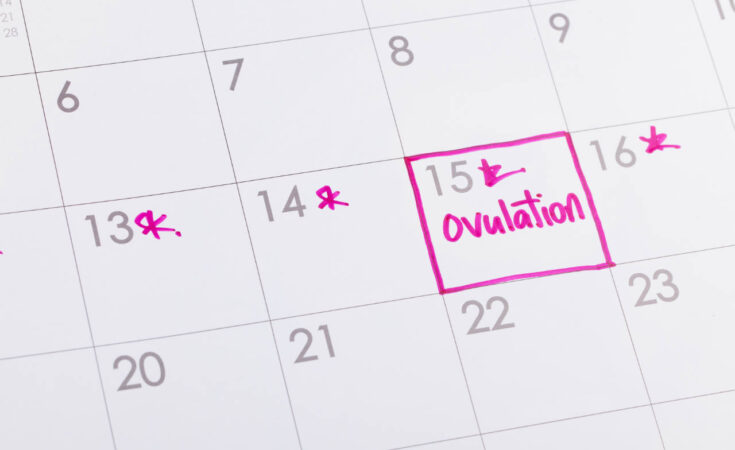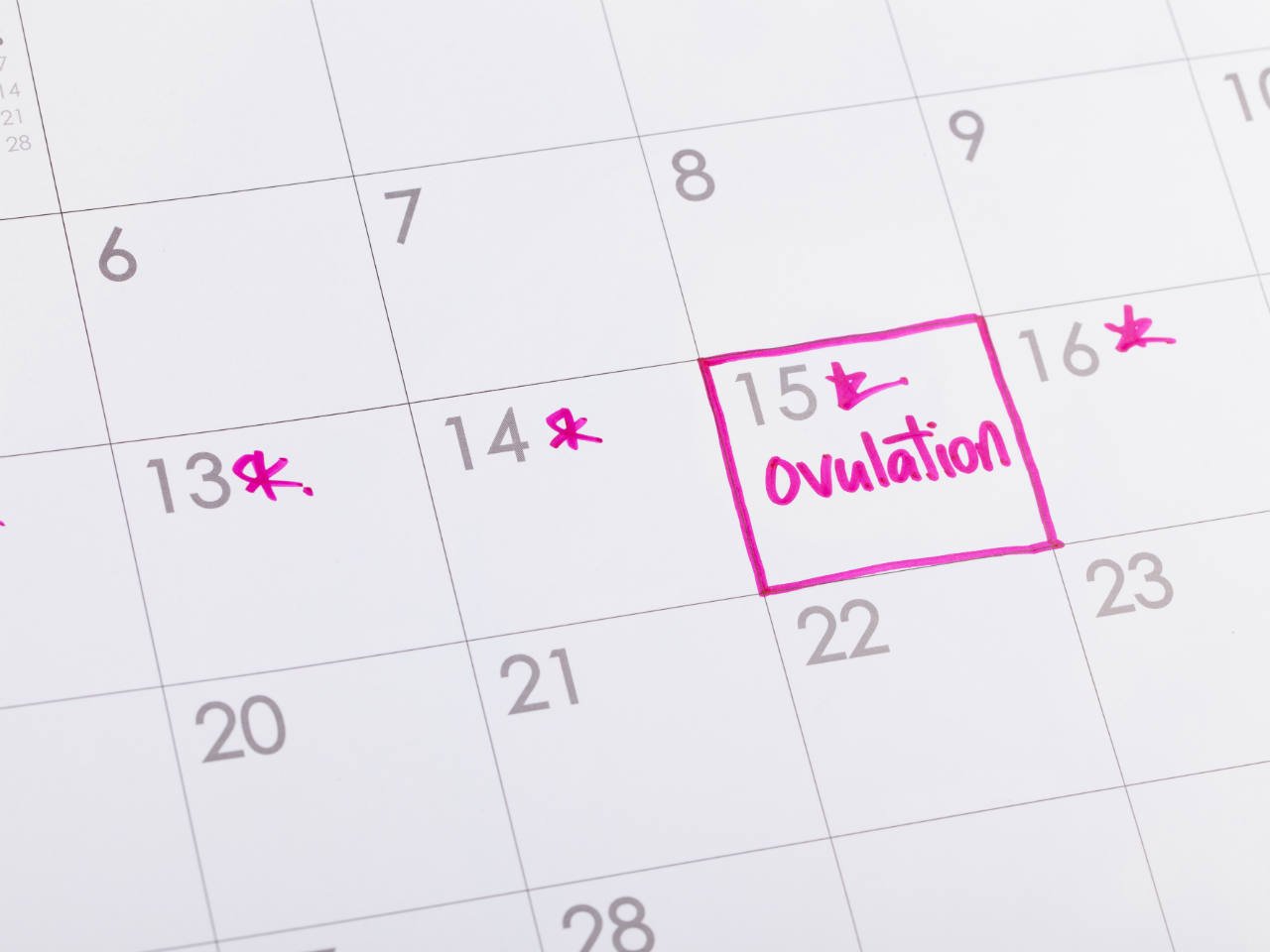Calculating your baby’s due date isn’t as easy as you might think. Here’s how to figure out how many weeks pregnant you are.
OK, ‘How many weeks pregnant am I’ may seem like a funny thing to ask Dr. Google, but it’s pretty common to be a little confused about your due date—or how many weeks pregnant you are—in the earliest stages of pregnancy. That’s true even if you’ve been tracking your cycles religiously, and even if you suspect you know the exact date of conception.
How many weeks are in a pregnancy?
Pregnancy is an average of 40 weeks, or 280 days, long. However, this is calculated from the first day of your last menstrual period—before you’ve finished bleeding, before you’ve ovulated and (often) before you’ve engaged in any, um, baby-making activity.
This means, if you have a 28-day cycle, you’re already considered two weeks pregnant at the time of ovulation, and four weeks pregnant by the time your next period is due. Confusing, right?!
It’s also important to remember that this is an average: The length of your pregnancy could be longer or shorter than 40 weeks.
I just took a positive pregnancy test: How many weeks pregnant am I?
Home pregnancy tests measure hCG in your urine, which starts being produced right after implantation. However, it takes a few days for it to accumulate enough in your urine to be detectable. Home pregnancy tests won’t show a positive pregnancy until you’re at least 5 to 6 days away from the expected date of your next period. At this point, you’re already more than three weeks pregnant. If you took the test on the date of your expected period, you’re considered four weeks pregnant (if you have a 28 day cycle).
How do I calculate my due date?
There are a few different ways to calculate your expected due date:
First day of last period
Many doctors use a method that sounds like a math test problem: Take the first day of your last menstrual period, add seven days and subtract three months. For example, if you got your last period on March 1, you would add seven days to get March 8, then backtrack three months. February 8, January 8, December 8—this is your due date!
Conception date
Not everyone has a 28 day cycle, and for some women, calculating the due date by conception date could be more accurate. This only works if you’ve been tracking your ovulation by symptoms or using ovulation test trips, though. And remember, the conception date is not necessarily the date you had sex, as sperm hang around in the reproductive system for a few days.
But if you do know your ovulation date, add 266 days to it, and that’s your due date.
IVF transfer date
If you conceived through in vitro fertilization, you can calculate your due date using your embryo transfer date. If you had a Day 3 embryo transfer, count 263 days from your transfer date. If you had a Day 5 transfer, count 261 days.
Determining how many weeks pregnant you are by ultrasound
Your doctor or midwife might schedule you for a dating ultrasound to measure the developing embryo and calculate your due date more precisely. The earlier the dating ultrasound is conducted, the more accurate it is. (Care providers usually aim to get it done between week 6 and week 11 of pregnancy.) If the embryo is still quite small, the ultrasound tech may use a transvaginal wand to do an internal pelvic ultrasound, in addition to the more common gel-on-abdomen ultrasound method.
Remembering how many weeks pregnant you are
As your pregnancy progresses, you might find it challenging to remember how many weeks pregnant you are (and how that translates to trimesters). If ever you get confused, go back to the first day of your last period, and count from there.
Here’s how the weeks translate into trimesters:
First trimester: Weeks 1 to 12
Second trimester: Weeks 13 to 27
Third trimester: Weeks 28 to 40 (or until you deliver.)
Could my due date change?
As you can see, calculating your due date is not an exact science, and it’s possible it will change as more information comes to light. For example, if your period is irregular, your originally calculated due date, based on the first day of your last period, might change after a dating ultrasound. Similarly, if your fundal measurement (the distance from the top of your pubic bone to the top of your uterus) is above average, it may be determined that you are actually further along in your pregnancy than originally thought.
Due dates are important, as they help doctors and midwives make assessments on how your pregnancy progressing and when to consider induction if you’re overdue. But remember, there are no guarantees for when you’ll go into labour—your guess for when your baby will be born is as good as any!
Stay in touch
Subscribe to Today’s Parent’s daily newsletter for our best parenting news, tips, essays and recipes.
= 0;if(!is_postback){return;}var form_content = jQuery(this).contents().find(‘#gform_wrapper_13’);var is_confirmation = jQuery(this).contents().find(‘#gform_confirmation_wrapper_13’).length > 0;var is_redirect = contents.indexOf(‘gformRedirect(){‘) >= 0;var is_form = form_content.length > 0 && ! is_redirect && ! is_confirmation;var mt = parseInt(jQuery(‘html’).css(‘margin-top’), 10) + parseInt(jQuery(‘body’).css(‘margin-top’), 10) + 100;if(is_form){jQuery(‘#gform_wrapper_13’).html(form_content.html());if(form_content.hasClass(‘gform_validation_error’)){jQuery(‘#gform_wrapper_13’).addClass(‘gform_validation_error’);} else {jQuery(‘#gform_wrapper_13’).removeClass(‘gform_validation_error’);}setTimeout( function() { /* delay the scroll by 50 milliseconds to fix a bug in chrome */ jQuery(document).scrollTop(jQuery(‘#gform_wrapper_13’).offset().top – mt); }, 50 );if(window[‘gformInitDatepicker’]) {gformInitDatepicker();}if(window[‘gformInitPriceFields’]) {gformInitPriceFields();}var current_page = jQuery(‘#gform_source_page_number_13’).val();gformInitSpinner( 13, ‘https://www.todaysparent.com/wp-content/plugins/gravityforms/images/spinner.gif’ );jQuery(document).trigger(‘gform_page_loaded’, [13, current_page]);window[‘gf_submitting_13’] = false;}else if(!is_redirect){var confirmation_content = jQuery(this).contents().find(‘.GF_AJAX_POSTBACK’).html();if(!confirmation_content){confirmation_content = contents;}setTimeout(function(){jQuery(‘#gform_wrapper_13’).replaceWith(confirmation_content);jQuery(document).scrollTop(jQuery(‘#gf_13’).offset().top – mt);jQuery(document).trigger(‘gform_confirmation_loaded’, [13]);window[‘gf_submitting_13’] = false;}, 50);}else{jQuery(‘#gform_13’).append(contents);if(window[‘gformRedirect’]) {gformRedirect();}}jQuery(document).trigger(‘gform_post_render’, [13, current_page]);} );} );]]>
Read The Full Article Here



































